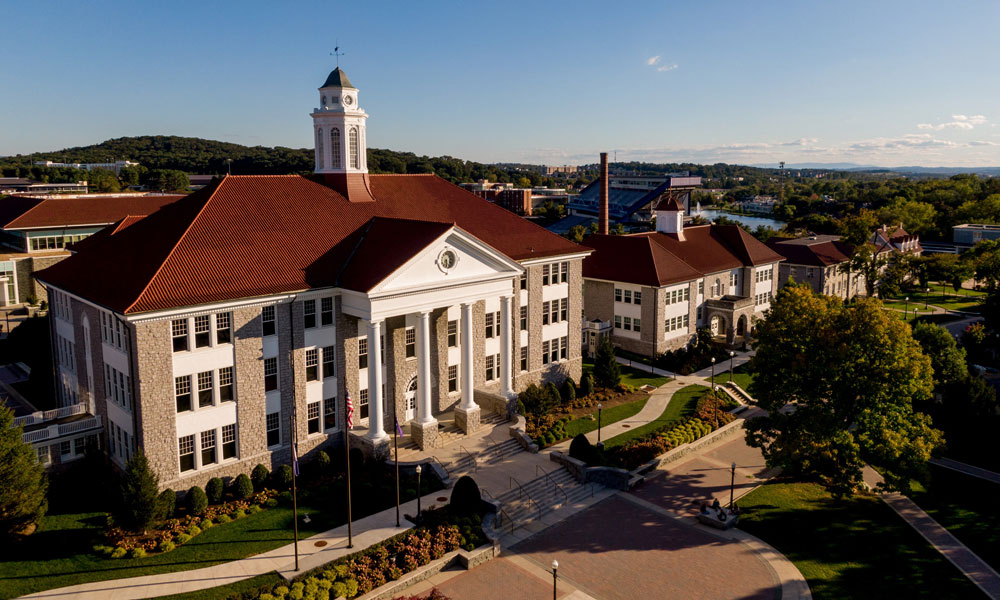Dance Faculty Member Wins Provost Award for Excellence in International Education
Office of the Provost
“It isn’t about making money or gaining fame. It’s really about making connections with other international artists and knowing that the sharing benefits everyone.”
Shane O’Hara was bitten by the international bug while in graduate school for dance at Arizona State University. When an alum relayed an opportunity with a small dance company in Greece during his second year at ASU, O’Hara jumped at the opportunity. He decided to take a semester off and spent five months working on pieces and performing in summer festivals around Athens.
O’Hara’s first chance to work internationally has been followed by many others. A year after returning from Greece, he spent a month-and-a-half teaching classes and performing in Japan. O’Hara worked professionally in Philadelphia for four years before landing his first teaching job at the University of Alabama in 1989.
While at the University of Alabama, O’Hara applied for a Fulbright scholarship and was awarded the scholarship in the spring of 1994. By that time, O’Hara had moved on to JMU, and he decided to take a trip to Portugal using the Fulbright scholarship. O’Hara says his first connection to Portugal came about while in graduate school—and that international dance work in general is “really about connecting with the people.”
After returning from Portugal, O’Hara travelled to Poland with fellow dance faculty members, Kate Trammell and Cynthia Thompson. O’Hara also reached out to the Office of International Programs (oIP) at JMU, where he became more familiar with the study abroad programs.
O’Hara submitted a proposal and was selected to run the eight-week JMU Semester in London Program. The program later morphed into the London Intensive on Contemporary Dance and Performance, a 25-day trip for intermediate to upper-intermediate level contemporary modern dancers. Students of the program have exposure to the city and cutting edge performance work while also participating in rigorous training.
O’Hara, who began teaching at JMU in 1992, ran his eighth Intensive program this past summer and considers the program a highlight of his time at the university. “It is an integral part of our recruitment and promotion. Plus, I see how it changes the students. They come back and make work they weren’t making before.”
In addition to the London program, O’Hara is proud of the Sichuan Dance Project, a 16-day cultural dance exchange he created between JMU and four other schools in the Sichuan Province of China. Eleven students from the Dance Program participated in the exchange in May 2013, marking it “one of the first times JMU has sent an arts group to China,” says O’Hara.
During a prior exchange in Brazil, O’Hara recalls doing a four-day workshop with actors, a scenario different than what he expected. “When you do international work, you have to be totally open to being flexible,” relays O’Hara. “The ability to adapt and be in the moment is essential as a performer and a teacher.” O’Hara adds that it is his international work, especially the London program that has helped him stay current as a performer and teacher.
And those international exchanges don’t always involve O’Hara travelling abroad, but also international faculty coming to JMU to host workshops as well. “It’s about facilitating the exchange,” reiterates O’Hara, who also finds it encouraging that the new Madison Plan calls for 25 percent of students to have international experiences. “Students get a whole different perspective when they’re exposed to new views on dance here or overseas. But studying abroad forces students to pay attention to the world around them.”
O’Hara recently received the 2014 Provost Award for Excellence in International Education and was selected for the Fulbright Specialist Program, which will allow him to continue his international work in two counties for six months within the next five years. He looks forward to reconnecting with contacts in Portugal in order to work again in Brazil.
